The recent coup in Niger is but the latest reminder of the importance of militaries in processes of democratization. Historically, soldiers have been the leading cause of democratic collapse. Over 61% of the democracies that died between 1789 and 2008 did so due to a military coup. Today, coups remain a potent threat, ending democratic transitions in Egypt, Thailand, Mali, Myanmar, Guinea, Sudan, Burkina Faso, and Niger, among others.
Beyond coups, militaries also occasionally play supporting roles in the other forms of democratic breakdown. When elected leaders undermine democracy from within (what political scientists call “self-coups” or “incumbent takeovers”), they often do so with the help of the military. France’s Louis-Napoleon (1851), Peru’s Alberto Fujimori (1992), and most recently Tunisia’s Kais Saied (2021) all deployed the military to either shutter the parliament and/or help them repress the opposition. Militaries also play central roles in whether democracies descend into civil wars, and whether pro-democracy uprisings are crushed from the start like in Tiananmen Square. In short, if there is any one actor that is integral to the course of democratization, it is the military.
Despite their importance, we lack a general theory of why some militaries thwart democratization, let alone one that disaggregates between the different forms of breakdown. In my new book, “Soldiers of Democracy? Military Legacies and the Arab Spring,” I generate a theory of military behavior from the experiences of Egypt and Tunisia. Drawing on 140 interviews in each country, I first explain why the military in Egypt undermined the country’s democratic transition through repression and a coup in 2013, while in Tunisia, the military initially supported the transition only to later facilitate the president’s incumbent takeover in 2021. I then leverage global data to show that these cases reflect two broader patterns.
Militaries that have historically been empowered, like in Egypt, are more likely to engage in repression and coups during democratization. By contrast, militaries that have historically been marginalized, like in Tunisia, are more conducive to democracy, but also come with heightened risks of incumbent takeovers and civil wars.
Military legacies from autocracy
The point of departure for the book is to think about the legacies for democracy that are created by how previous dictators in that country had managed their militaries. Dictators, like democrats, are also fearful of their militaries — most of them will also be toppled by military coups. In turn, dictators have developed two dominant strategies for managing this threat.
One strategy is to empower their militaries: to keep the men with guns satisfied by granting them the material resources and political power they seek. Think of the empowered militaries in Egypt, Pakistan, Thailand, North Korea, or Turkey under Atatürk. Already at the center of power, these militaries see little interest in staging a coup against the dictator.
The alternative strategy, however, is to marginalize the military: to keep it too weak, materially and politically, to be able to stage a coup. Dictatorships in Tunisia (1956-2011), Malawi (1964-1994), Hungary (1949-1989), and Mexico (1929-2000), for instance, all marginalized their militaries. Empowering the military removes its will to stage a coup, while marginalizing it removes its capacity to.
A useful proxy for these two strategies is the military’s budget — do dictators neglect or pamper their troops? Figure 1 plots the military’s budget in every dictatorship from 1946-2010 with the risk that the dictator fell to a military coup. As can be seen, dictators who kept their militaries either weak or strong reduced their risk of a coup fourfold — from a 2% chance to a 0.5% chance in any given year.
In short, either strategy can be effective at keeping the dictator safe from a coup. But if and when the masses in these countries rise up for democracy, this choice — whether the dictator had empowered or marginalized the military — will have tremendous consequences shaping the likelihood of democratization and the forms by which it breaks down.
Consequences for democracy
Empowered militaries are far more likely to thwart transitions to democracy. Democracy is likely to push empowered militaries out of their ministerial positions and redistribute their bloated budgets toward public services for the electorate. Beyond corporate interests, there are also two secondary mechanisms at play.
Empowered militaries attract the country’s elite, who view the military as the best pathway to power and wealth. The rich, however, generally prefer the autocratic status quo over democracy. Finally, empowered militaries, that have been at the center of the regime, come to justify their role in governance as part of their professional duties. Democracy will thus strip these politicized militaries of what they have come to believe is their rightful place in the state.
For all these reasons — corporate interests, elite composition, and politicization — empowered militaries are more likely than marginalized ones to oppose democratization. As a result, empowered militaries are more likely to repress pro-democracy uprisings, and if that fails, to stage coups against new democracies.
We see these patterns clearly in the historical record. First, using data on 157 uprisings between 1945-2013, I find that empowered militaries have been far more likely to repress pro-democracy uprisings, rather than allowing them to proceed (Figure 2). Mass uprisings against empowered militaries are also less likely to enjoy security force defections, and in turn less likely to succeed, as in Pakistan (1983-84), China (1989), and Bahrain (2011).
If, however, pro-democracy forces do manage to oust the dictator and initiate a transition, the legacies of having empowered the military will continue to haunt the new democracy. The newly elected government will face a difficult process of bargaining with the empowered military over its privileges. In some cases, new democracies succeed in making a pact with the military, but in most, uncertainty and miscalculations lead new democracies to push too far, spurring empowered militaries into staging coups and overturning the democratic process entirely.
Figure 3 plots this dilemma on the 80 democratic transitions between 1950-2010. Transitions that inherited the most empowered militaries from dictatorships — where the dictator was spending more than 30% of the budget on the military — were almost four times more likely to fall to coups. By 10 years into democracy, they had a 40% chance of having fallen to a coup. By contrast, transitions inheriting the most marginalized militaries were far more likely to succeed, with less than a 10% chance of falling to a military coup. In short, democratization is far easier with marginalized militaries.
The risks of marginalization
Marginalized militaries, however, are not entirely without risk. In fact, the two other forms of democratic breakdown — incumbent takeovers and civil wars — are relatively more likely with marginalized militaries.
Elected leaders can readily coopt marginalized militaries into democracy by enhancing their material and political interests. But by the same token, they can also more easily coopt them into their own incumbent takeovers. Moreover, having been socialized to stay far from politics and not challenge civilian control, marginalized militaries are less likely to challenge such takeovers, as in Tunisia in 2021. Indeed, statistically, incumbent takeovers are about three times more likely with marginalized militaries than empowered ones (Figure 4):
Marginalized militaries are also at a greater risk of civil war. Weak and neglected, they are less able to deter and defeat rebel challenges. Moreover, having often been marginalized through divide-and-rule tactics, these militaries are more likely to fracture and fight one another. Indeed, I find that democratic transitions that inherit more marginalized militaries are about three times more likely to descend into civil war (Figure 5):
In short, the dictator’s choice to either empower or marginalize the military creates long-term legacies for democracy. Empowered militaries, prone to repression and coups, make democratization far more difficult. Marginalized militaries are more conducive to democracy, but also come with higher risks of incumbent takeovers and civil wars.
Policy implications
These patterns, in turn, can help guide U.S. policymakers during democratic transitions. When transitions are inheriting empowered militaries, the challenge is in striking the best possible bargain for democracy that pushes the military as far out of politics as possible. That requires a coordinated international response publicly signaling that aid will be suspended in the event of a coup. Muddling this message, or worse, sending different messages to the military and the elected government (as occurred in Egypt in 2013), can exacerbate bargaining problems and spark a coup that ends democracy.
Transitions with marginalized militaries, however, require a different approach. Here, the larger threat is an incumbent takeover. Foreign military training programs should provide clear guidance on how militaries should distance themselves from presidents seeking to undermine democracy, as General Mark Milley seemingly did under President Donald Trump.
Meanwhile, the heightened threat of civil war implies the need to strengthen the army to deter rebel challenges, while also taking care not to exacerbate internal rivalries in the security forces that might splinter into violence. In short, recognizing the type of military each transition inherits can help to tailor the approach to security sector reform to the unique risks each military carries.
The Brookings Institution is committed to quality, independence, and impact.
We are supported by a diverse array of funders. In line with our values and policies, each Brookings publication represents the sole views of its author(s).

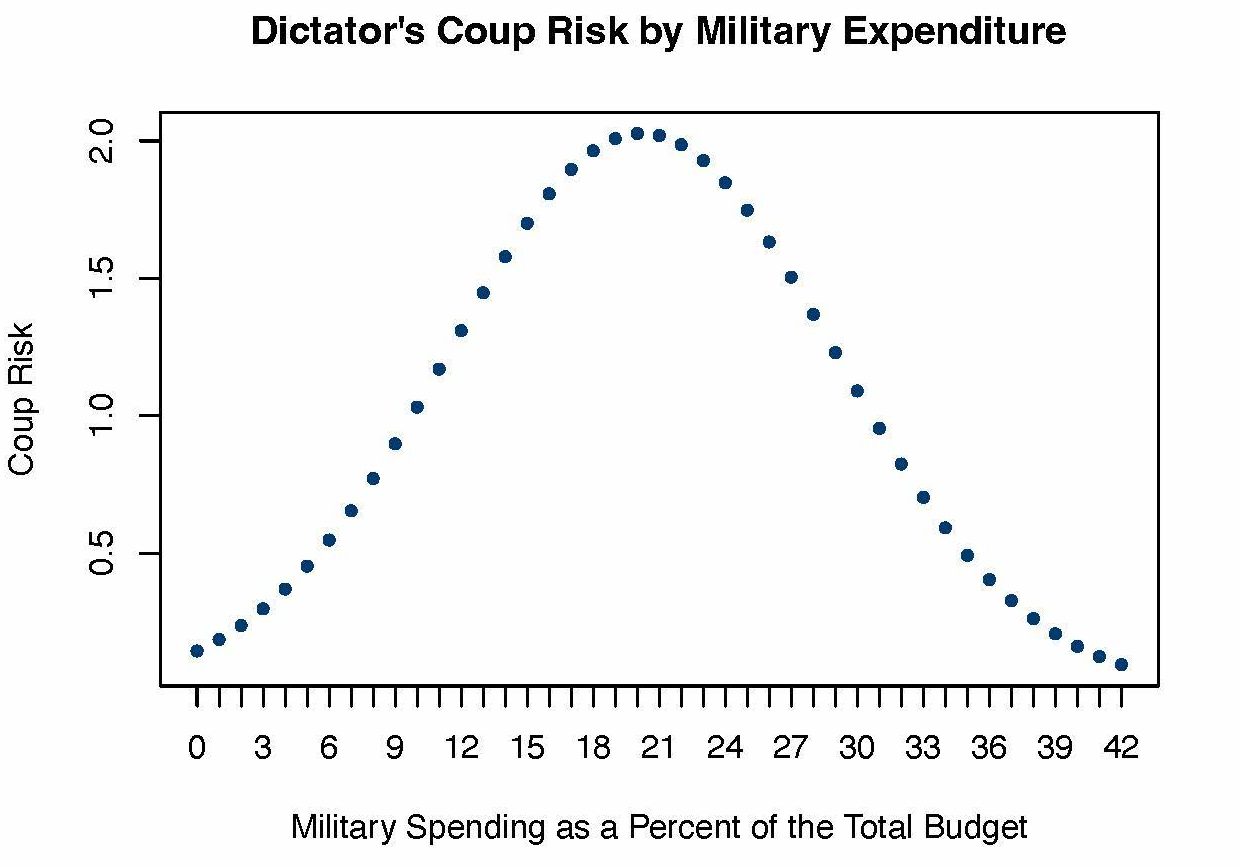
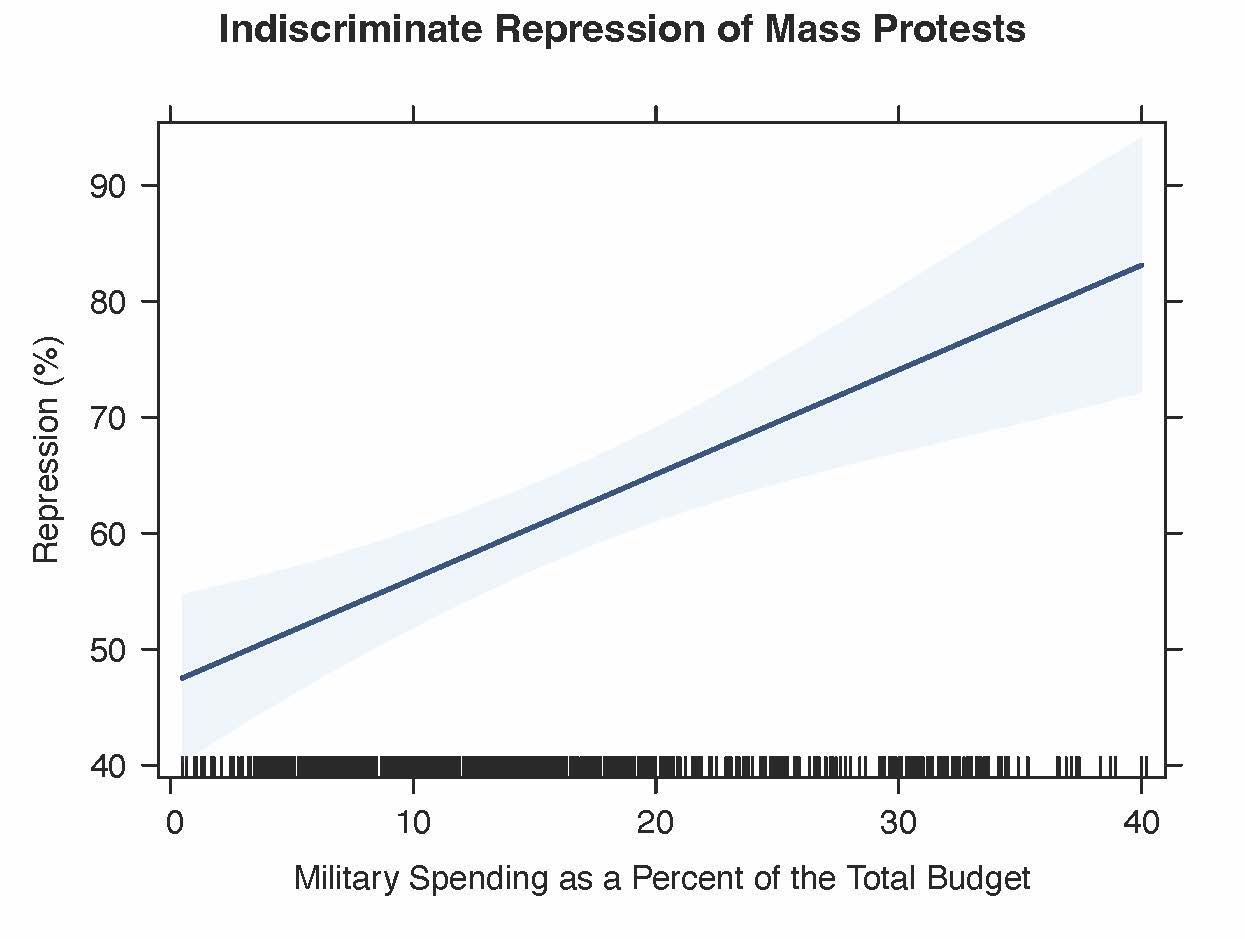
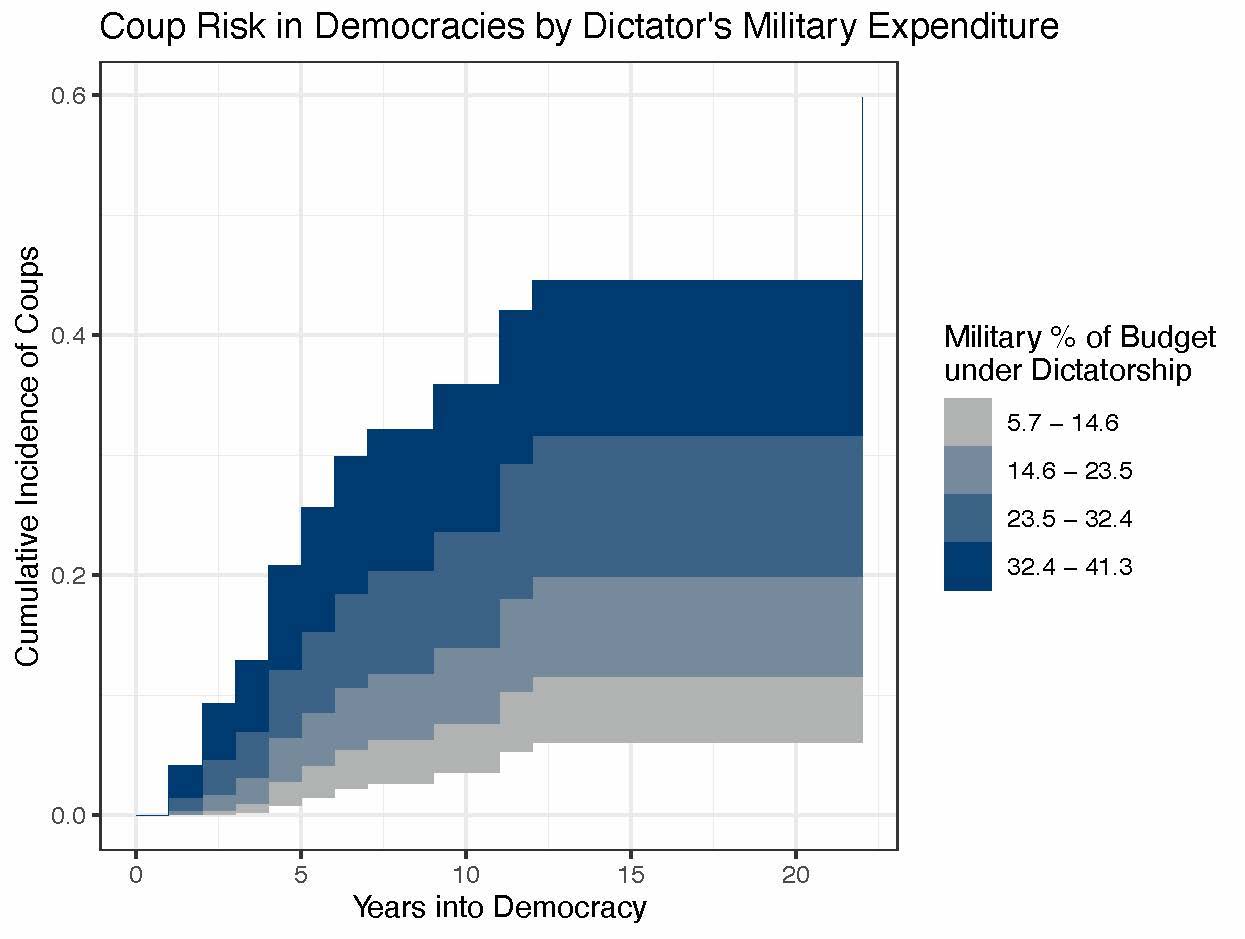
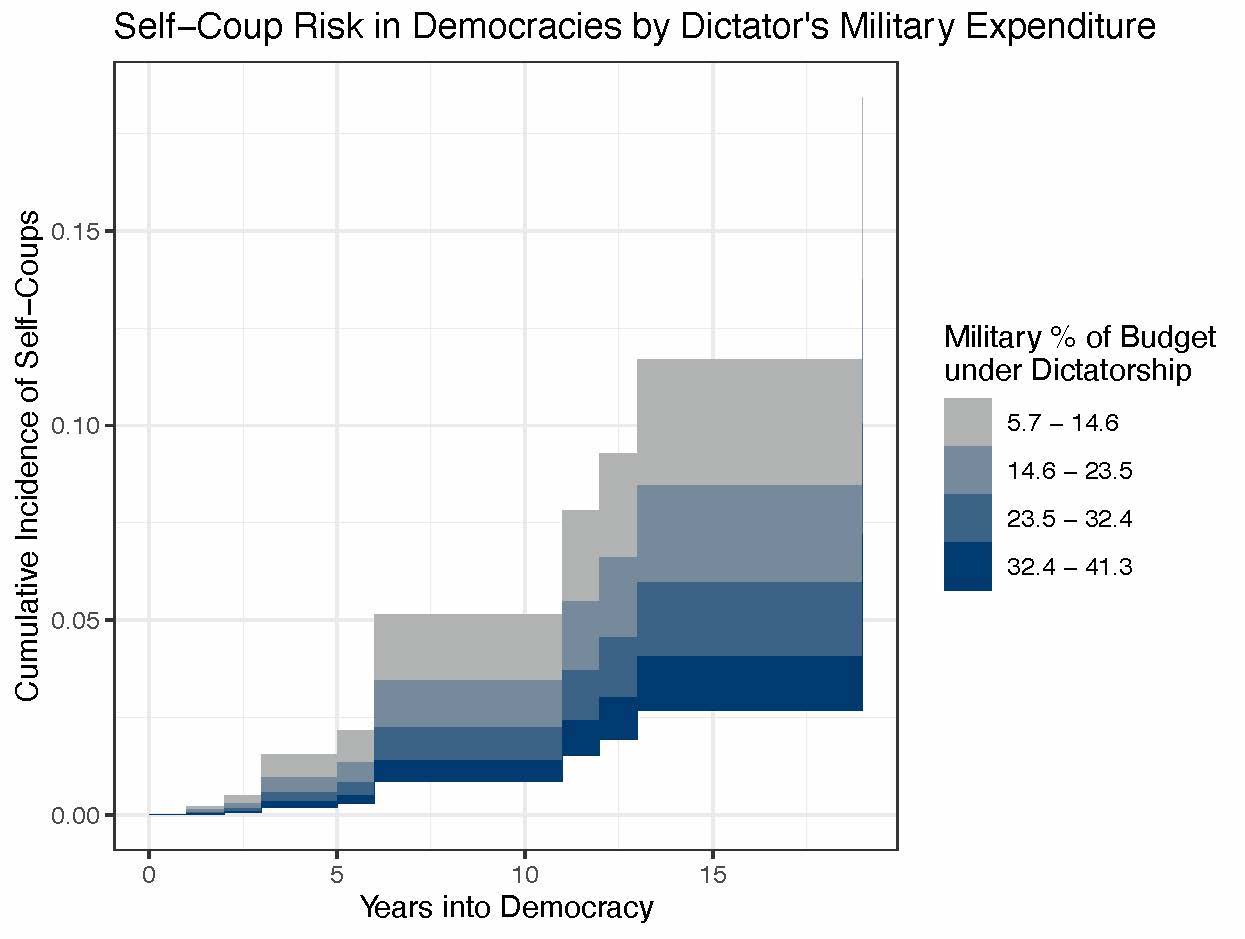
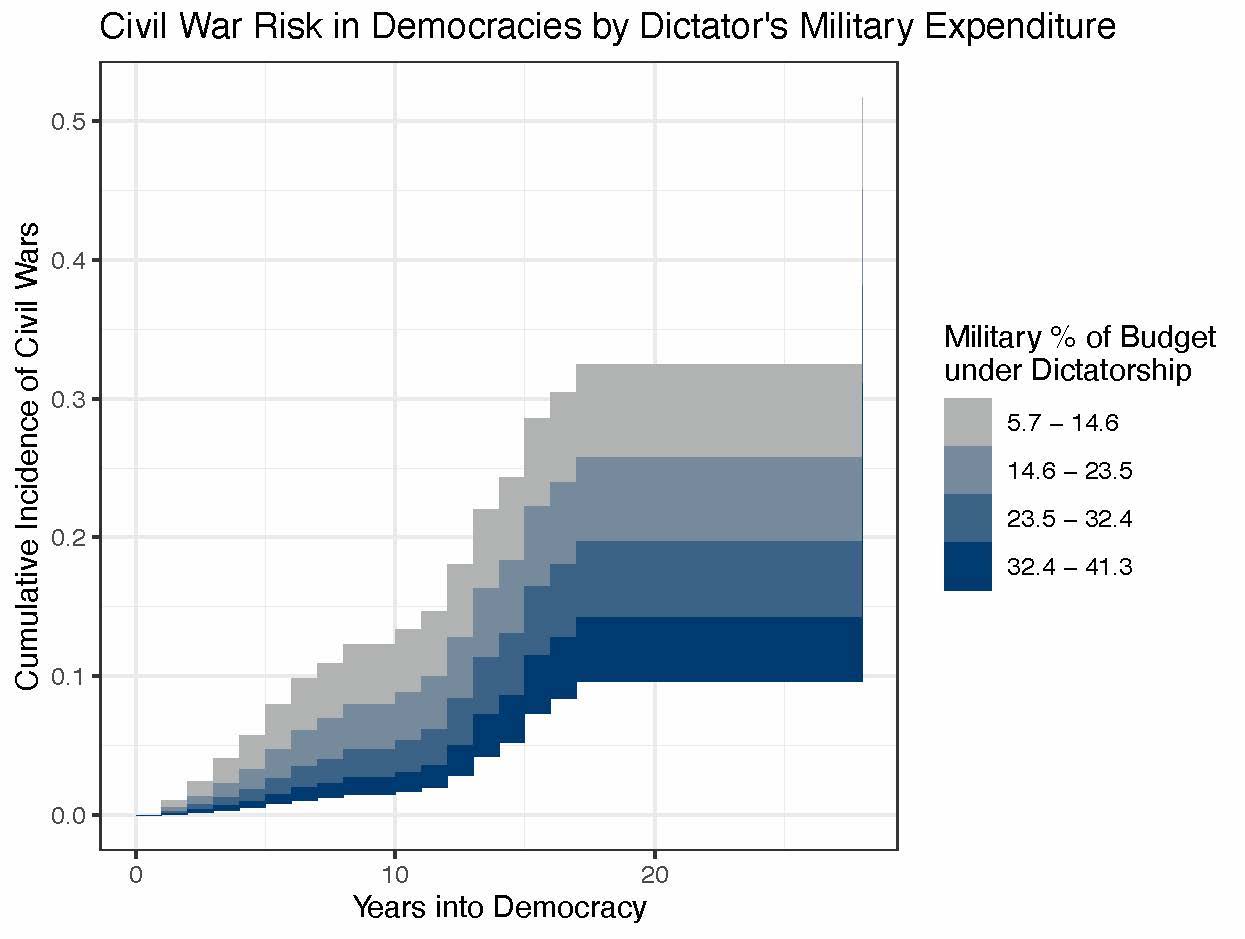
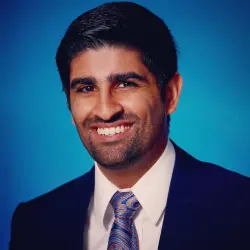
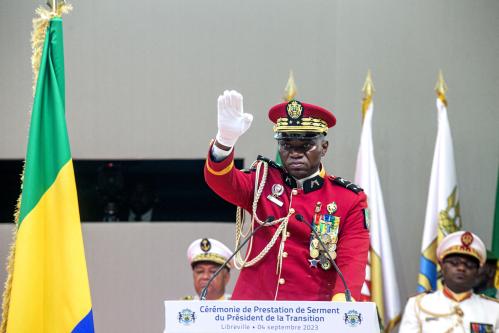

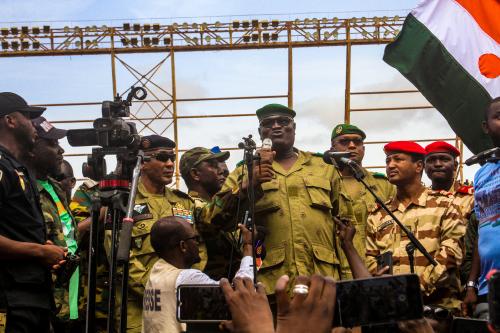



Commentary
When do militaries undermine democratization?
November 3, 2023